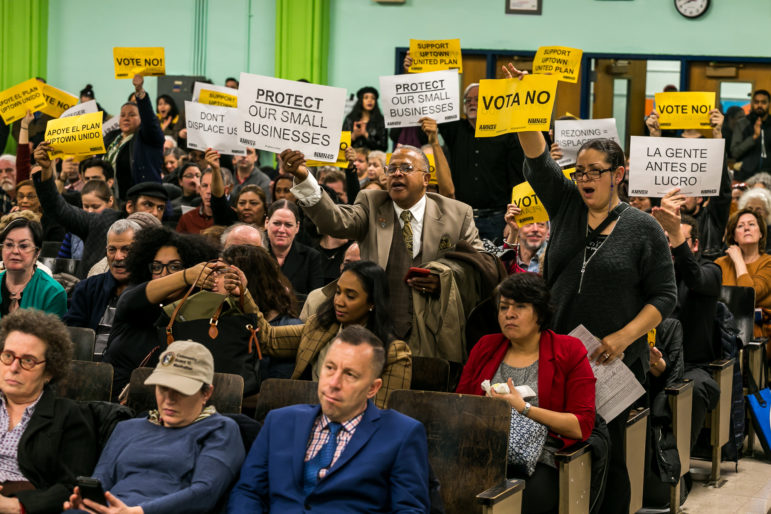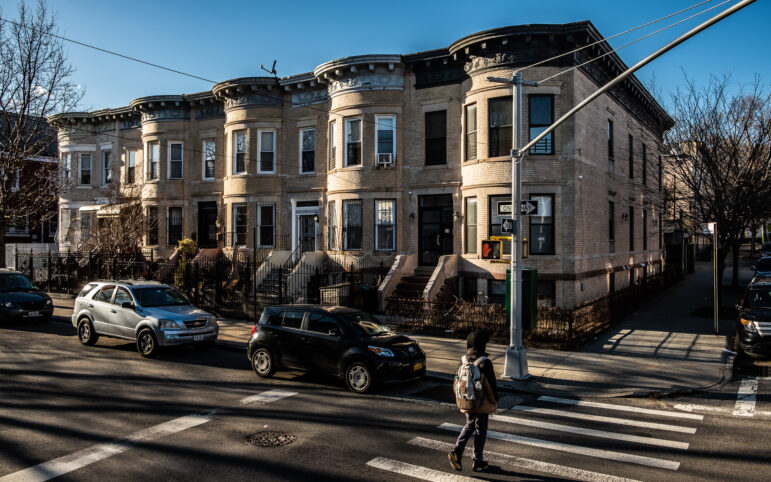A rigorous social science researcher, an impassioned striver for justice, a generous mentor and friend, a gentle, intellectual and modest man – that was the Walter Stafford universally recalled by friends and colleagues last week after the New York University professor’s death on September 13.
From his post in a cluttered office at the Robert F. Wagner School of Public Service, Stafford, a professor of urban planning and public policy, sat at the nexus of many overlapping circles of city life, from academia to organizing to government to activism and back again. His death at 68 after an eight-year struggle with cancer, which finally metastasized to his liver, sent a ripple of sadness through those communities, and across several generations.
“For me, Walter Stafford was the ideal for what a university professor should be, deeply intellectual and widely read, yet kind to his students and above all investing his scholarship and life in the cause of moving us all to a more equal and just society,” said Don Johnson, professor emeritus in NYU’s department of humanities and social science.
An African-American born in Atlanta, Georgia in 1940, Stafford’s lifelong work centered around the intersection of race and public policy. He was a member of the Student Nonviolent Coordinating Committee (SNCC) in the 1960s, an assistant to U.S. Sen. Richard Schweiker, a Republican from Pennsylvania, in the 70s, and worked at the National Urban League and the Community Service Society in the 80s. Stafford received his doctorate in Public and International Affairs from the University of Pittsburgh.
Before joining the Wagner faculty in 1990, he also taught at Hunter College and SUNY-Old Westbury. He published more than 100 papers on issues including urban race relations, racial labor market segmentation, Black and Puerto Rican poverty, and welfare. He also founded the Women of Color Policy Network in 2000 and served as its faculty director until this summer.
“Walter was a visionary, activist and scholar who understood the importance of giving voice, of providing an outlet to those critical issues that had no avenue for expression,” said Marta Moreno Vega, president of the Caribbean Cultural Center of the African Diaspora Institute. “We found a kindred spirit in Walter, and he was willing to get involved with our Roundtable as he understood both from a professional and personal view the need for those issues to be carried on.”
Esmeralda Simmons, now executive director of the Center for Law and Social Justice at Medgar Evers College, pointed out that Stafford’s wide-ranging work even reached across oceans. “He served as a consultant on urban development to the South African government during Mandela’s administration,” she recalled. “Walter was one of the few folks I called heroes.”
Diana Salas got involved with the roundtable (now the Network) as a student, and is now its associate director. “His memory will live on through all the people he has touched,” Salas said. “We credit him with our personal development and growth. I am one of those students. Thank you Walter for your unrelenting pursuit of justice and for truly mentoring a new generation of advocate-researchers.”
Indeed, said Wagner professor Victor G. Rodwin, “I don’t know other faculty who had such an admiring team working so closely with them.”
Known as “Billy” to close friends, Stafford was soft-spoken and quick-witted, with a one-of-a-kind smile and a love of jazz and blues. He had a partner for more than 20 years in his wife, Chelli Devadutt, and had one stepdaughter, Gita Stulberg. The couple lived on the Upper West Side.
Frank Smith, a former City Councilman in Washington, D.C. and the director of the African American Civil War Memorial and Museum there, fondly remembered his friend of some 45 years.
“A few of us civil rights workers came together to form the Student Nonviolent Coordinating Committee. We became a tight-knit group that stayed together as personal friends, sharing a special bond of common values. Billy spent his life trying to have the politicians and the intellectual academicians develop a working relationship … He encouraged his students to find the data to provide the politicians so they would be convinced of the need to weave all of their ideals together, with the data to back them up,” Smith said. “Of all the early SNCC group, Billy was the clear thinker, the intellectual who developed policy initiatives, published more of his ideas in papers to share with others, hoping always that the world would adopt those ideals.”
But, he noted: “Billy always made time to attend family events, never losing time to join the ‘common man’ or to enjoy the make-believe of an opera.”
One of Stafford’s major professional pursuits in recent years was the development of a measure of poverty for New York City based on standards developed by the United Nations Development Programme (UNDP). The human development index, as the measure is called, rates countries on a scale according to health, knowledge and standard of living attainments. The human development index for New York City will classify neighborhoods as high, medium or low development areas. The goal of the project is to take a more holistic approach to poverty. “People need a broader concept of poverty,” Stafford said in an interview last fall with City Limits (on whose board he also used to sit). “Income is not the only variable.” People living in low development areas in New York City, such as Harlem or the South Bronx, not only generally have lower incomes, but their health, education and standard of living are lower, too. This “multi-dimensional poverty” is ignored by the federal poverty measure, Stafford said.
“The nonprofit community has lost its research arm. Walter was the ‘go-to guy’ for over 20 years on issues of policy analysis,” Fran Barrett, executive director of the Community Resource Exchange, said last week.
Brooklyn City Councilman Albert Vann, a former state legislator who aided in the creation of Medgar Evers College – an institution dear to Stafford – added, “If the pen is mightier than the sword, then he was our esteemed leader – the general in our army, fighting for our freedom. Our tribute to him is to stay in the fight.”
A program called “Remembering Walter Stafford: A Celebration of Service, Scholarship and Activism” is scheduled for 3 p.m. on Oct. 12 at the Schomburg Center for Research in Black Culture, in Harlem.
Remembrances collected by Suki Terada Ports, executive director of the Family Health Project, and a friend of Walter Stafford.








